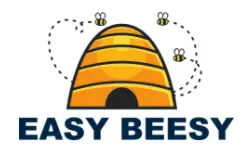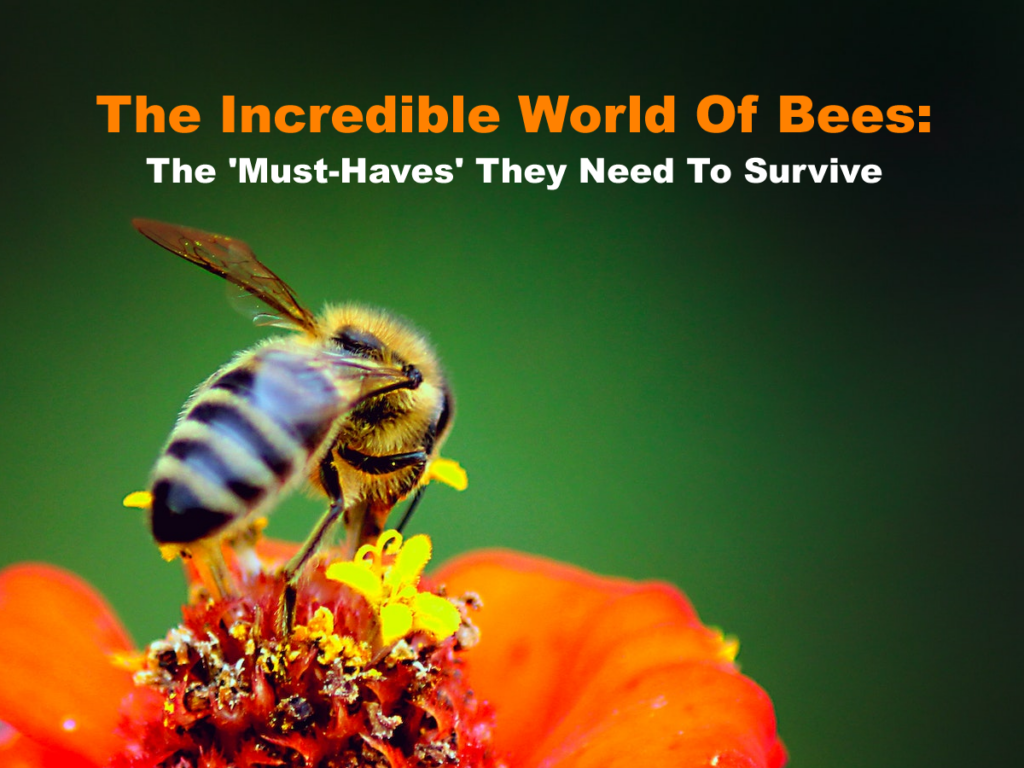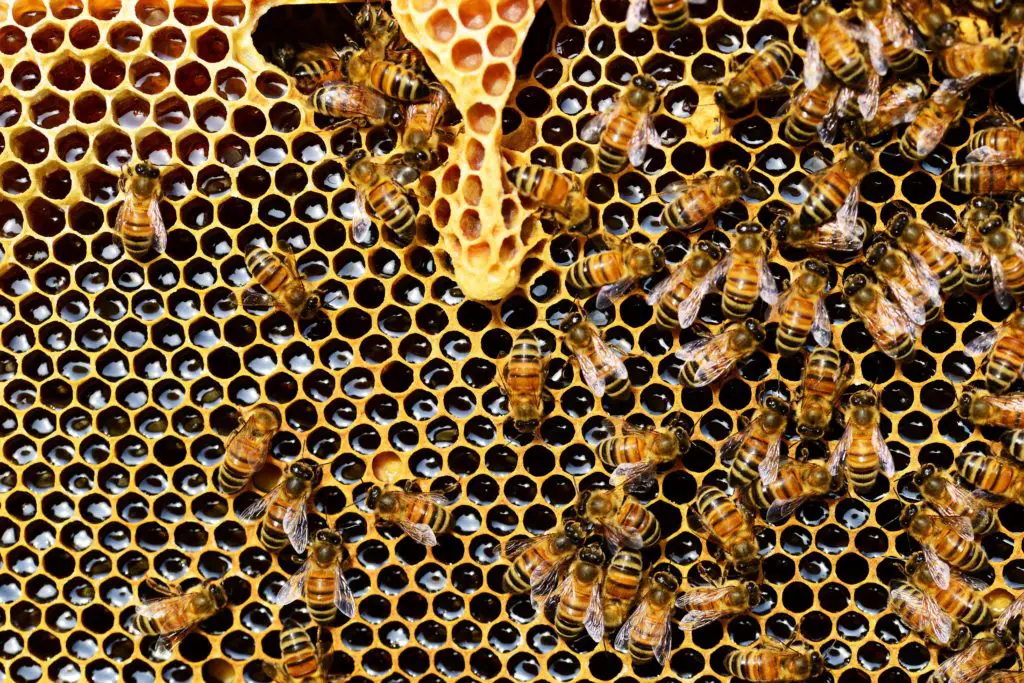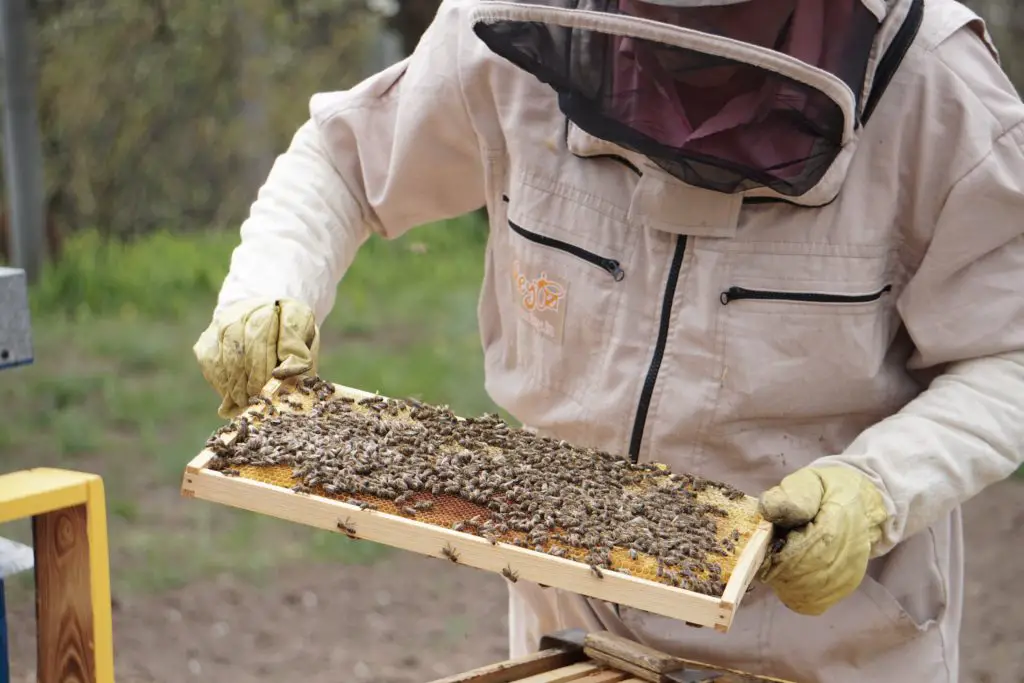Affiliate Disclaimer - As an Amazon Associate I earn from qualifying purchases.
It supports the website. So, Thank you
When it comes to beekeeping, your role is to provide everything your bees need to thrive. While they are complex creatures, they only need a few basic things for the colony to keep going. But what do bees need to survive?
In the main, bees need food, shelter, and water to survive. But there are ins and outs of this that you’ll need to understand as a beekeeper. Moreover, it’s important to consider what we can all do in terms of caring for wild bees, especially since numbers are declining.
In this guide, I’m going to discuss exactly what you’ll need to have to keep your colony thriving.
The Beekeeper’s Guide To Everything Bees Need
Without the basics like food, water and shelter, your bees are never going to survive, especially over winter. Before you start your hive, it’s important to make sure that you have everything prepared so your bees can get to work right away.
Food
As with any animal, bees are not going to survive for long without a food source. In fact, food is so important to honey bees that they spend most of their time gathering it and storing it away in the hive. They collect nectar and pollen from flowers and make honey which they store as a food source, especially for those cold winter months.
Since they collect nectar and pollen from flowering plants, it’s really important that there are a lot of these nearby. When you buy a hive, I’d recommend first ensuring that you plant enough flowering vegetation to tide your bees over. It’s also worth considering what’s growing in the local area since bees can travel several miles from the hive when they are foraging.
If there are not enough flowering plants in the vicinity and the bees cannot gather enough nectar, it may be necessary for you to provide them with sugar water. While this is not an ideal substitute, it’s favored among the apiculture community as it’s the closest thing to nectar. Although you should be mindful about the type of sugar you use as some are not suitable for bees.
I’d also recommend making sure that you never use any chemicals like pesticides on your flowering plants as this can be very harmful to your colony.
Water
Water is another essential thing that bees need to survive. Usually, they will collect water as and when they need it and don’t typically store very much of it in the hive. But this does mean that, as a beekeeper, you’ll need to make sure that there’s a local source of water for your colony to use. Something as simple as leaving out a bee bath can be enough.
The reason that bees need water to survive is largely that they will drink it. However, this isn’t the only way that bees use water.
Royal jelly is a substance that is produced by bees as a food source for the larvae that will become queen as well as for the queen herself. But they are not able to produce this unless they consume significant amounts of water.
What’s more, bees will use water to even out the consistency of their honey. Normally, cold weather means that the honey they produce is a lot thicker than usual so they’ll water it down.
Your bees will also rely on water to maintain a consistent temperature in the hive. If it gets too hot in there, this can be devastating to the health and survival of the colony but by using water on the comb, the bees will fan their wings and create a mini AC system.
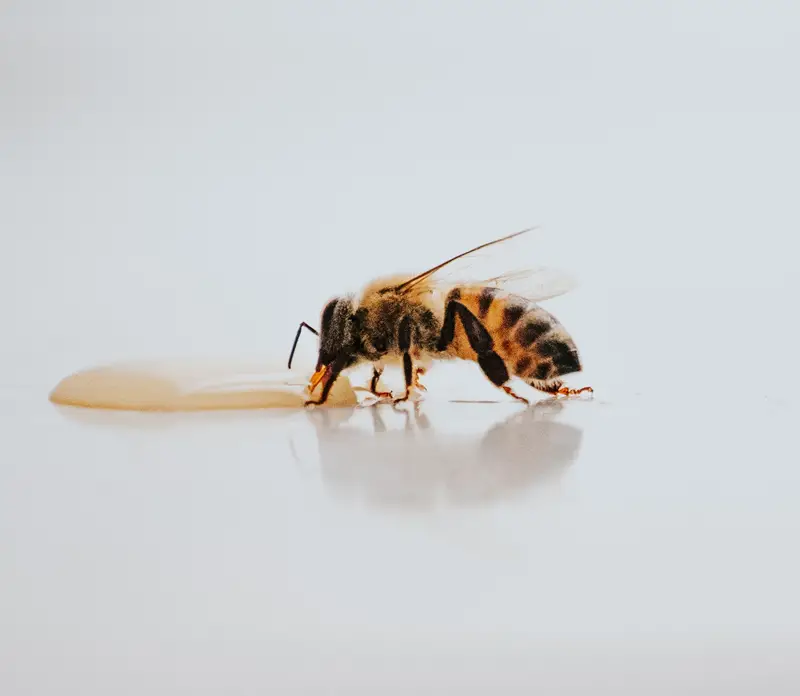
Shelter
Wild bees build nests to use as shelter but if you’re going to be a beekeeper then you’ll invest in a hive. Normally, bees will build their nests in rocks, hollowed-out trees and even in houses. However, a beehive is manmade and provides adequate shelter for our winged friends.
Not only does a beehive provide shelter from the elements but it’s also a place for the bees to raise their young.
A bee brood is the eggs and bees in both the larval and pupal stages of life and since queens can lay thousands of eggs a day, there needs to be room to accommodate this. The eggs hatch and these bees are known as larvae. After a short period of feeding, the larvae cap off their cells and enter the pupal stage of life. This is where the bee develops into what we would recognize as a bee and when the time comes, it will gnaw its way out of the cell and get to work.
However, if there is not enough space for all of the larvae to develop, then it is highly likely that up to half of the hive will swarm and find somewhere to start a new colony.
Earlier I discussed the importance of having water for your bees and that’s most definitely the case. However, that doesn’t mean that you want water getting into the hive. If it does, then it could affect the larvae and pupa as well as spoil the bees’ food stores. On top of this, if the inside of the hive is too wet, it can encourage mould growth.
On a beehive, you’ll notice that the roof is designed to repel rain but it can also be a good idea to consider how you place your beehive. Tilting it at a slight angle means that rainwater will roll straight off. If possible, you could also place the hives under some kind of cover for further protection from the elements.
It’s also very wise to keep a consistent eye on the condition of your hive and make repairs to cracks and damage as soon as you notice it. This will prevent excess water from getting inside.
You should consider how well-ventilated the hive is as when it’s not got good airflow, this can affect an otherwise healthy colony of bees. This is largely because of a build-up of condensation and, as we have learned, excess moisture is not a good thing inside the hive.
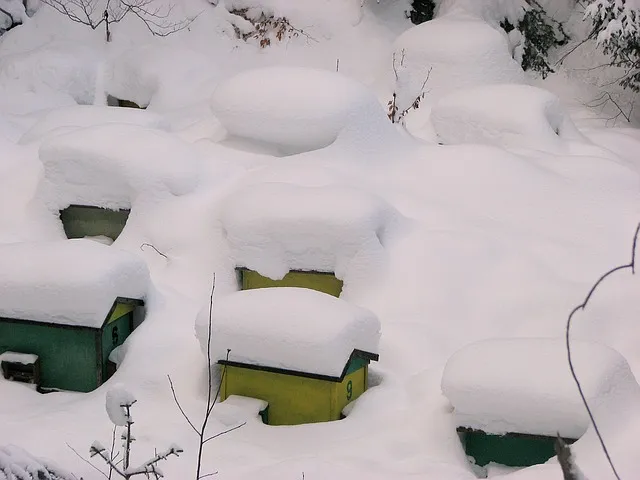
What Do Bees Need In Winter?
One of the biggest challenges for new beekeepers is getting their colony through the first winter. This is where people often give up as so many hives die during the colder months. This is usually because of a lack of food and one of the reasons that it’s so important not to take all of the honey from the hive.
In fact, in the first year, you’ll be unlikely to be able to take any honey for yourself as the bees will have only made enough to feed the colony over winter. And in a lot of cases, they’ll still need supplements.
If you need to supply additional food for your bees in winter then sugar syrup is the best option. You should never give your bees honey from another hive as this could cause serious harm and even has the potential to kill off the entire colony.
Do keep in mind that sugar syrup is nowhere near as nutritionally beneficial to the bees although it is an acceptable substitute. But if you want to improve the nutritional value then it is possible to add essential oils.
Place your feeders inside the hive as this will limit the amount of time that the bees have to spend outside. They don’t fare too well in cold weather so keeping them inside is safest. It’s also worth keeping in mind that opening the hive unnecessarily over winter could kill your colony. Therefore, it’s essential to only open it when you absolutely must and keep it open for as little time as possible.
How To Take Care Of Wild Bees
Even if you’re not a beekeeper and there isn’t a hive in sight, there are still going to be lots of wild bees about. Moreover, bees from local hives will be buzzing around your backyard and we can all do our bit to give them what they need.
I think that a lot of people are worried about attracting bees to their gardens for the fear of them stinging. However, honey bees are very docile creatures and won’t bother humans unless they feel threatened. Having a few bees around your home should cause you no disruption and it’s always interesting to be able to observe nature on your own doorstep.
Furthermore, honey bee numbers have declined and yet they are such an important part of the ecosystem. Therefore, I’d encourage everyone to do even the smallest part to ensure local colonies thrive.
One of the best things you can do to help bees is to plant as many flowering plants, trees, and shrubs as possible. I’d also recommend allowing your garden to get a little wilder as this provides a wonderful habitat for the bees. You don’t need to let the whole yard become overgrown; even having just a small area that’s left to nature will be enough.
Where possible, try to cut your grass less frequently as this will again provide a better habitat for the bees. If you do notice any bees’ nests, try to leave them alone unless they are causing severe disruption to you and your family, they won’t do you any harm.
Again, always avoid using chemicals like herbicides and pesticides in your garden. These will harm bees and there are other natural methods you can use instead.
Final Thoughts
If you have been considering getting a beehive then you’ve probably wondered what do bees need to survive? The answer is simple; they don’t need a lot, just three basic things. These are food, water, and shelter.
But of course, there are things you’ll need to do to take good care of your bees that go beyond just providing the basics. That said, once they have everything they need, a colony will pretty much take care of themselves with you in the background providing care as and when it is needed.
